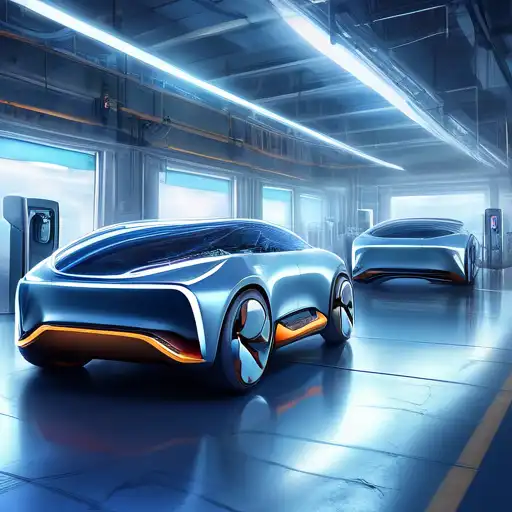The Dawn of a New Era in Automotive Technology
The automotive industry is undergoing a transformative shift, with electric vehicles (EVs) and cutting-edge automotive technologies leading the charge. This revolution is not just about replacing the internal combustion engine; it's about reimagining the future of transportation. From advancements in battery technology to autonomous driving systems, the sector is evolving at an unprecedented pace.
Electric Vehicles: Powering the Future
Electric vehicles have moved from niche to mainstream, thanks to significant improvements in battery life, charging infrastructure, and vehicle performance. Companies like Tesla, Nissan, and Chevrolet are at the forefront, offering models that cater to a wide range of consumers. The environmental benefits of EVs, combined with lower operating costs, are making them an increasingly attractive option for drivers worldwide.
Breakthroughs in Battery Technology
At the heart of the EV revolution is battery technology. Recent advancements have led to batteries that are more efficient, longer-lasting, and faster to charge. Solid-state batteries, for example, promise to revolutionize the industry by offering higher energy density and improved safety. These innovations are crucial for addressing range anxiety and making EVs more accessible to the average consumer.
Autonomous Driving: The Road Ahead
Another area of rapid development is autonomous driving technology. With companies like Waymo and Tesla testing self-driving cars, the dream of hands-free driving is becoming a reality. These systems rely on a combination of sensors, cameras, and artificial intelligence to navigate roads safely. While fully autonomous vehicles are still in the testing phase, features like adaptive cruise control and lane-keeping assist are already enhancing driver safety and convenience.
Sustainable Materials and Manufacturing
Sustainability is a key focus in the automotive industry's future. Manufacturers are exploring the use of recycled materials and more eco-friendly production processes. This shift not only reduces the environmental impact of vehicle production but also aligns with the growing consumer demand for sustainable products.
Connectivity and the Smart Car
Today's vehicles are more connected than ever, with technologies that allow for real-time traffic updates, remote diagnostics, and even over-the-air software updates. This connectivity enhances the driving experience, improves safety, and paves the way for future innovations like vehicle-to-vehicle communication.
Conclusion
The advancements in electric vehicles and automotive technology are setting the stage for a cleaner, safer, and more efficient future. As the industry continues to innovate, we can expect to see even more groundbreaking developments that will further transform how we think about transportation. The road ahead is electric, autonomous, and connected, and it's arriving faster than many of us anticipated.
